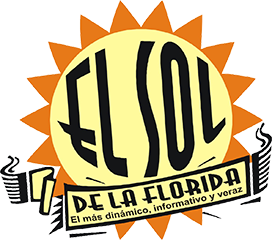Empresarios de México, Colombia y Perú, junto a otros españoles, concurren a la IV edición de los Premios Iberoamericanos de Mecenazgo, que se entregan este lunes en Madrid, y que cumplen con el objetivo de “promover el mecenazgo en arte e inspirar a través del ejemplo”.
La iniciativa premia el compromiso social con el arte y es, además, “una incubadora de futuros mecenas”, aseguró a Efe su impulsora, la presidenta de la Fundación Callia, Carmen Reviriego, que señala que la importancia de los premios reside en la relevancia de los premiados, el “destacado” jurado y “la gente que congrega”.
Reviriego forma parte del jurado junto al director del Museo del Prado, Miguel Falomir, la presidenta de la Real Academia de Historia de España, Carmen Iglesias, o el director del Museo Thyssen, Guillermo Solana, que reconocen la labor de un mecenas español y otro latinoamericano, con una obra de una artista emergente.
“A quien se invita a los premios no es a coleccionistas ni a mecenas, sino a grandísimos empresarios que tienen la capacidad de hacer la diferencia”, asegura su impulsora, que explica que en esta edición acudirán cien grandes empresarios iberoamericanos.
En la anterior edición de los premios se galardonó al español Carlos Fitz-James Stuart, actual Duque de Alba, que según Riviriego representa el “mayor patrimonio histórico-artístico actual” y a la coleccionista de arte venezolana Patricia Phelps de Cisneros, “una de las grandes mecenas del arte en Iberoamérica”.
Reviriego explicó que la convocatoria de los premios sirve también para establecer lazos de unión entre España y Iberoamérica y juntar a empresarios de distintos ámbitos e “introducirles en el compromiso social con el arte”, transmitiéndoles que pueden “trascender” y “dejar un mundo mejor”.
“Se ha transmitido un concepto del arte que no llega a la gente, una definición muy metafísica” asegura Reviviego, que define el arte como “un sentimiento de plenitud” o un “viaje interior”, que experimentamos ante cualquier obra.
Lamenta que en España, un empresario “que se ha hecho a sí mismo” y que además está comprometido socialmente es “sospechoso”: “Quería cambiar esa cultura y la forma de cambiar esa cultura era inspirar a los iberoamericanos a través del ejemplo”, dice.
En su opinión, la financiación de los museos debe partir de una iniciativa privada. “Hay que conseguir que los museos, los nuevos templos de Dios, sean autosostenibles” y que lleguen a ellos los “peregrinos” para conmoverse y “sentirse vivos” a través del arte. efe
take place this Monday in Madrid, and which fulfill the objective of “promoting patronage in art and inspiring through of the example “.
The initiative rewards the social commitment to art and is, in addition, “an incubator for future patrons”, assured Efe its promoter, the president of the Callia Foundation, Carmen Reviriego, who points out that the importance of the awards lies in the relevance of the winners, the “outstanding” jury and “the people who gather”.
Reviriego is part of the jury along with the director of the Museo del Prado, Miguel Falomir, the president of the Royal Academy of History of Spain, Carmen Iglesias, or the director of the Thyssen Museum, Guillermo Solana, who recognize the work of a Spanish patron and another Latin American, with a work by an emerging artist.
“Who is invited to the awards is not collectors or patrons, but great businessmen who have the ability to make a difference,” says the promoter, who explains that this year will be attended by one hundred large Ibero-American entrepreneurs.
In the previous edition of the awards, the Spaniard Carlos Fitz-James Stuart, currently Duque de Alba, was awarded, who according to Riviriego represents the “greatest historical-artistic heritage” and the Venezuelan art collector Patricia Phelps de Cisneros, “one of the great patrons of art in Ibero-America “.
Reviriego explained that the announcement of the awards also serves to establish ties of union between Spain and Ibero-America and bring together entrepreneurs from different fields and “introduce them to the social commitment to art,” conveying that they can “transcend” and “leave a better world ”
“A concept of art that does not reach people has been transmitted, a very metaphysical definition” says Reviviego, which defines art as “a sense of fulfillment” or an “inner journey”, which we experience before any work.
Regrets that in Spain, an entrepreneur “who has made himself” and who is also socially committed is “suspicious”: “I wanted to change that culture and the way to change that culture was to inspire Ibero-Americans through example”, He says.
In his opinion, the financing of museums must start from a private initiative. “We must ensure that museums, the new temples of God, are self-sustaining” and that “pilgrims” reach them in order to be moved and “feel alive” through art. efe


